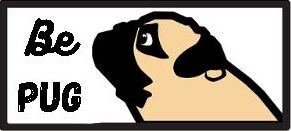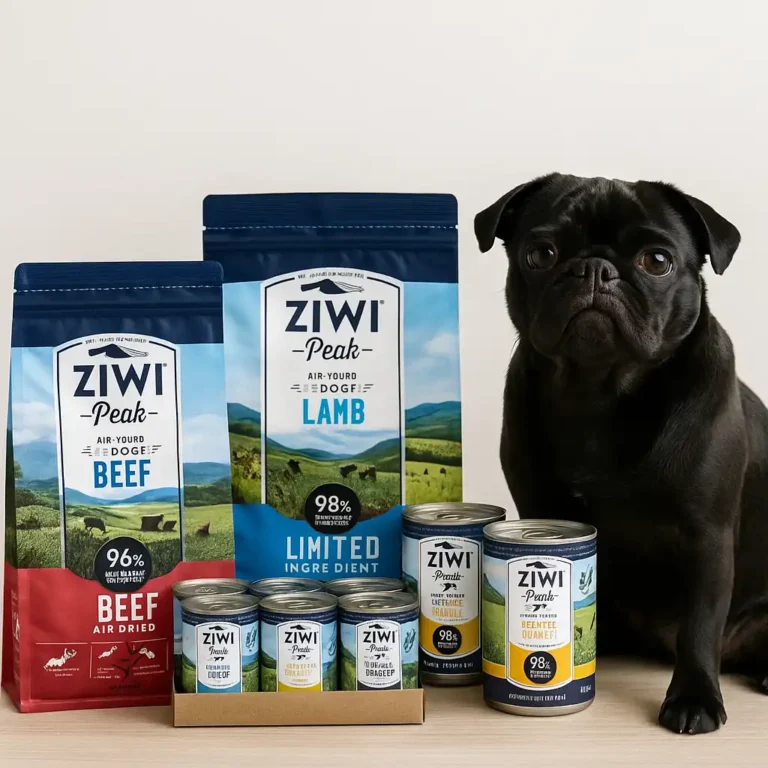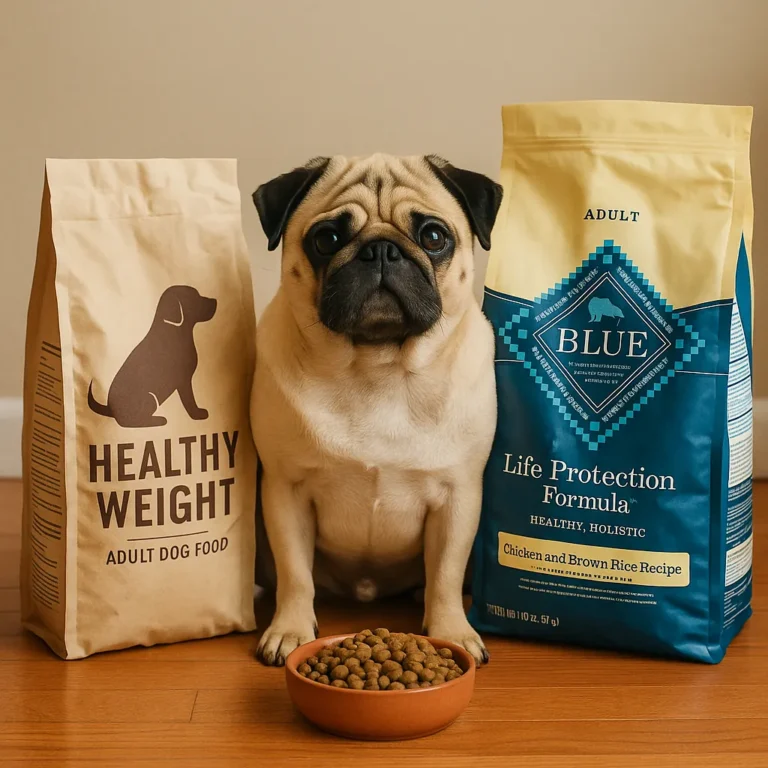Struvite Crystals in Dogs Foods to Avoid: Ingredients That Trigger Trouble in Pugs

Disclosure: This post contains affiliate links. As an Amazon Associate, I earn from qualifying purchases—at no extra cost to you.
When your pug is diagnosed with struvite crystals, their diet becomes a top priority. These crystals can develop in the bladder and cause painful urinary tract issues and, in severe cases, blockages that may require emergency care. While any dog can be affected, pugs are particularly sensitive due to their compact body structure and predisposition to urinary problems. Knowing which foods to avoid can help manage the condition and prevent it from worsening.
What Are Struvite Crystals and Why Do They Matter?
Struvite crystals are composed of magnesium, ammonium, and phosphate. They typically form in alkaline urine and can develop into stones if not addressed early. For pugs, whose anatomy can already pose challenges for proper hydration and urination, struvite crystals can quickly escalate from a minor issue to a serious health concern.
While medical management and increased water intake are key, your pug’s diet plays a crucial role in keeping their urinary tract healthy. Certain ingredients and food types are more likely to raise urine pH levels and contribute to crystal formation.
Ingredients and Food Types to Avoid
Not all commercial dog foods are created equal. Some contain ingredients that can worsen struvite issues or increase the likelihood of recurrence. These are the main culprits to keep off your pug’s menu:
High-Magnesium Foods
Magnesium is a building block of struvite crystals. While it’s an essential mineral, excessive amounts can contribute to crystal formation. Avoid foods rich in bone meal, soybean meal, or certain fish meals unless they are specifically formulated for urinary health.
Alkalizing Ingredients
Foods that cause the urine to become more alkaline can encourage struvite development. These include high levels of plant-based proteins and vegetables like peas, potatoes, sweet potatoes, and legumes. Many grain-free formulas use these as replacements, so it’s important to read labels carefully.
High-Protein Diets Without pH Balance
While protein is necessary for muscle maintenance, too much of the wrong type can alter your pug’s urinary pH. Be cautious of high-meat, high-protein diets unless they’re formulated for urinary care. Look for veterinary-formulated foods that maintain a slightly acidic urine pH.
Added Minerals and Supplements
Avoid foods that include unnecessary mineral supplements unless directed by your vet. Some fortified foods may contain high phosphorus or magnesium levels that are not ideal for a dog with urinary issues.
Treats and Table Scraps
Human food scraps, especially those high in salt, fat, or seasonings, should be eliminated. Many treats also contain hidden sources of sugar, sodium, or vegetable fillers that aren’t suitable for pugs with a urinary condition.
How to Support Your Pug’s Urinary Health Through Diet
In addition to eliminating problematic ingredients, you can support your pug’s urinary system with these proactive strategies:
- Hydration first: Encourage frequent water intake by offering fresh water throughout the day or using a dog-friendly water fountain.
- Feed moisture-rich foods: Incorporate wet food or add water to dry kibble to boost hydration.
- Choose vet-approved urinary diets: These foods are specially formulated to maintain the right pH balance and reduce recurrence of crystals.
- Avoid overfeeding: Keeping your pug at a healthy weight reduces pressure on the bladder and overall inflammation.
Conclusion
Managing struvite crystals in pugs isn’t just about medication—it’s largely about diet. Choosing the right food and avoiding high-magnesium and alkalizing ingredients can make a significant difference in your pug’s health and comfort. Always consult your veterinarian before making dietary changes, and consider foods designed specifically for urinary tract health. With the right nutrition and care, your pug can enjoy a happy, pain-free life.






